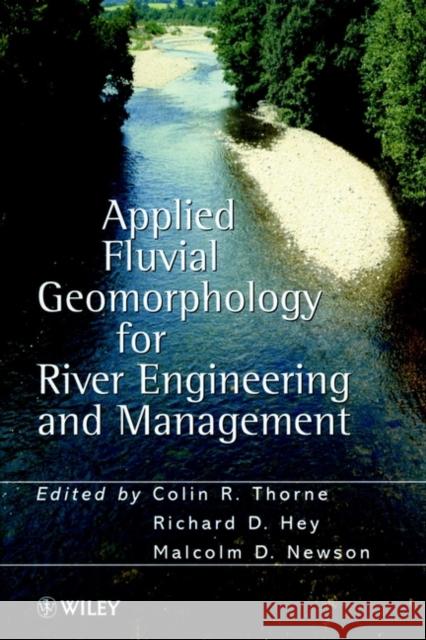Applied Fluvial Geomorphology for River Engineering and Management » książka
Applied Fluvial Geomorphology for River Engineering and Management
ISBN-13: 9780471969686 / Angielski / Miękka / 1998 / 388 str.
This invaluable overview of fluvial geomorphology provides river engineers and managers, who may lack specialist training, with useful insights into, and understanding of, natural channel forms and fluvial processes.
Such information is a pre-requisite for carrying out environmental impact assessments and for developing environmentally sensitive design and management procedures to preserve riverine environments and restore degraded ones. Designing with nature is preferable to imposing hard engineering solutions as it sustains natural biodiversity and minimises costs. This book will also be a very useful teaching aid for students, both under- and post-graduate, studying civil engineering, environmental management or sciences, or geography who are looking to have a wider knowledge of new approaches to the subject.
Geomorphology requires the collection and consideration of a wide range of data, mostly field based but also including historical information such as archive documents and maps, which are outside the experience of most river engineers and managers. These data enable the current condition of the river to be explained, both locally and within the catchment, and establish historical changes and future trends. In addition, process studies have now identified many of the mechanisms controlling river moprhology which underpin the development of soft, bio-engineering, design procedures. The book incorporates material on methods and techniques of data collection, analysis and interpretation, making extensive use of case studies throughout.
Thus the experienced authors go some way towards demystifying applied fluvial geomorphology by demonstrating that, while there is still an element of judgement, major contributions to geomorphic understanding usually come from the careful assemblage and objective analysis of all available data and information.











